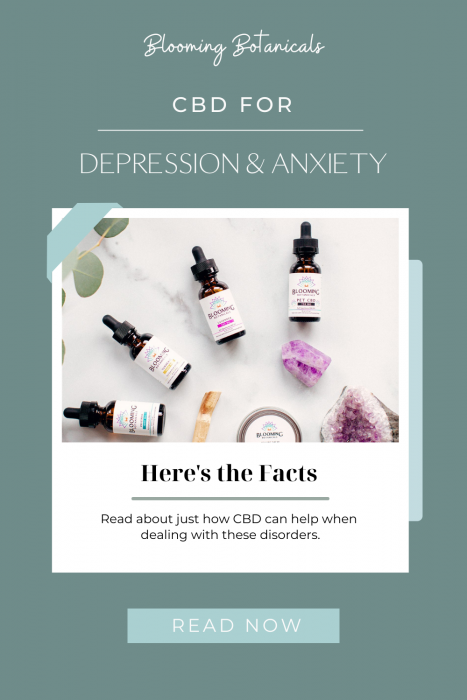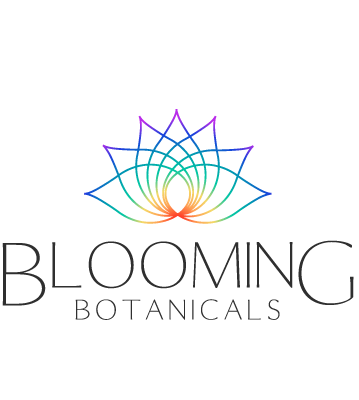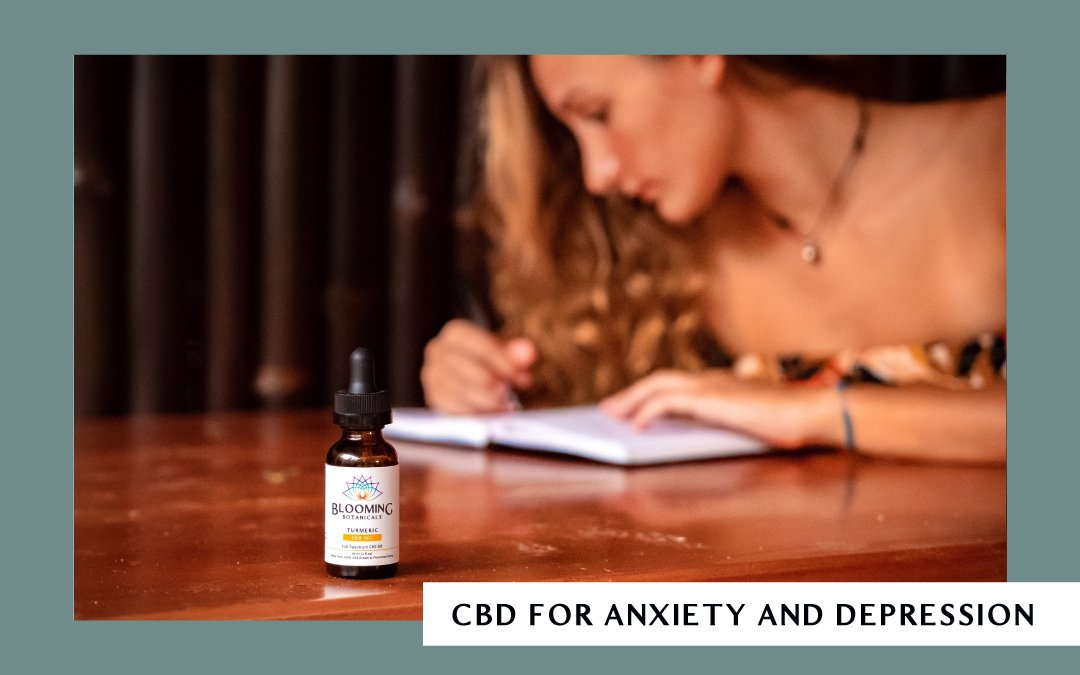If you want to utilize a natural supplement with little to no side effects to help reduce and fight your depression and/or anxiety, and even help improve your mental health, CBD (cannabidiol) for depression and anxiety is a solution you may want to consider.
CBD has grown in popularity after it was declared federally legal by the 2018 Farm Bill. And since then, an estimated 64 million Americans have tried CBD, making a positive impact on their health and wellbeing.
In this post, you’ll find out what anxiety and depression are and how they affect your body. We are also sharing the role CBD plays in mitigating depression and anxiety to help you find relief, plus learn what the science and research has to say about CBD.
What Are Anxiety and Depression?
Anxiety and depression are two common mental health conditions that can have a significant impact on a person’s life.
Anxiety is a feeling of unease or worry that can range from mild to severe. It’s a natural response to stress and can be helpful in certain situations.
However, when anxiety becomes excessive and interferes with daily activities, it can be a sign of an anxiety disorder.
Depression, on the other hand, is a mood disorder that can affect how a person feels, thinks, and behaves. It’s characterized by feelings of sadness, hopelessness, and a loss of interest in activities that were once enjoyable. Depression can be caused by a combination of genetic, biological, environmental, and psychological factors.
Both anxiety and depression can be treated with therapy, medication, or a combination of both. It’s important to seek help if you’re experiencing symptoms of anxiety or depression, as early treatment can lead to better outcomes.
As the Covid-19 pandemic affected the USA, a CDC research report found that the number of adults with recent symptoms of an anxiety or depressive disorder increased from 36.4 to 41.5%.
Anxiety
Anxiety can be characterized by feeling worried, fearful, uneasy, or nervous about any given situation or simply in general. Millions of people experience anxiety or have some form of anxiety disorder, whether it’s PTSD or a social anxiety disorder.
In the U.S. anxiety disorders are the most common mental health condition, affecting 40 million adults age 18 and older, or 18.1% of the population every year.
Anxiety affects your body both emotionally and physically. Emotionally, you may feel an overwhelming sense of fear or worry, and physically one of the ways it may affect you is by experiencing a sense of uneasiness in your gut, or even inability to sleep.
Some other notable signs and symptoms of anxiety you should keep in mind include:
- Having difficulty sleeping
- Muscle tension
- An increased heart rate
- Lack of concentration that hurts your work performance/daily activities
- Sweaty hands
- Feeling fatigued
- Feeling easily irritable
- Constantly experiencing feelings of worry and fear, hence not being calm
- Dizziness
- Nausea, stomachaches, or gastrointestinal problems
- Shortness of breath
If you are aware of these anxiety symptoms, you’re on the right track to finding methods and products that are a good fit for you to help cope with various anxiety disorders.
Depression
Depression can be characterized as a persistent or lingering feeling of ongoing sadness, anger, helplessness, and/or loss of interest in activities you once enjoyed or loved.
It is a mental health condition that has often been linked to harmful actions, such as suicide.
In addition, if you experience chronic health conditions, it is possible for depression to be exacerbated, making improving your quality of life even more critical.
According to the National Institute of Mental Health, in 2017 an estimated 17.3 million U.S. adults or 7.1% of the adult population experienced at least one major depressive episode.
When the Covid-19 pandemic hit the US, mental health problems, especially depression, were on the rise.
A recent study highlighted that the prevalence of depression symptoms in the US was more than 3x higher during Covid-19 compared to before the pandemic. The number first tripled in mid-April when stay-at-home orders and lockdowns were prevalent. It was reported that symptoms of depression were experienced in 27.8 percent of US adults.
What are some of the signs and symptoms of depression to be aware of during this time? Some signs to look out for include:
- Feelings of hopelessness and sadness.
- Sleep problems which can include oversleeping (hypersomnia) and insomnia (trouble falling/staying asleep).
- Changes in appetite where you either overeat or don’t eat enough. This has potential to affect your weight, so sudden weight changes are something to take note of.
- Having or experiencing suicidal thoughts.
- You’re unable to concentrate and work effectively. It can lead to job loss in severe cases of depression.
- You experience fatigue and a lack of energy. A research review stated that fatigue occurs in over 90% of patients as a symptom of major depressive disorder.
- Being isolated, not going out, and withdrawing from others, whether it is family or friends.
- You experience muscle pain, back pain, stomachaches, headaches and sometimes inflammation.
- A lack or loss of interest in things you used to find pleasure in, like hobbies or sports.
- You are easily irritable and feel more prone to angry outbursts.
Anxiety and depression are almost similar in terms of symptoms, but have their own unique root causes. Anxiety can be caused by medication side effects, ongoing or acute stress, even drug misuse.
Depression can be caused or contributed by brain chemistry, unbalanced diet/nutrition, and genetics or family history.
Since depression and anxiety are critical mental health issues that can affect the quality of one’s day to day life, seeking relief is a priority for those affected.
This is where CBD for depression and anxiety comes into play. CBD has the potential to help alleviate the negative impacts anxiety or depression may have on you.
Can CBD for Depression and Anxiety Be Effective In Providing Necessary Relief?
Both depression and anxiety are common mental health issues affecting millions of people. They have similar treatments, like therapy for example, which often overlap.
When you are depressed, you are likely to be anxious, too. And when you’re worried, you’re more likely to be depressed. You’ll experience them separately, but they can also occur in conjunction.
Most drugs recommended to alleviate this condition are usually antidepressants and SSRIs (selective serotonin reuptake inhibitors).
The biggest drawback of these drugs is their unpleasant side effects which may include:
- Nausea
- Insomnia
- Headaches
- Constipation and digestive problems
- Low sexual drive
- Erectile dysfunction
- Dizziness
Sometimes, experiencing negative side effects to medications which are supposed to be helping can also lead to intensified anxiety and/or depression.
These unpleasant side effects are one big reason why CBD is being championed as an alternative to over-the-counter drugs.
But is there a reason to be excited? Should we pay attention to this buzz on the benefits of CBD for depression and anxiety/mental health?
The science on how CBD may help with anxiety and depression is very limited. Most research studies are on animals, thus little or no human trials.
However, the research we do have available indicates that CBD shows potential to positively impact your mental health.
One research study reviewed studies on animal models using CBD as an anxiolytic-like and antidepressant-like compound. These studies suggested that CBD exhibited an anti-anxiety and antidepressant effect in the animal models discussed.
According to a study by Brightfield, almost 70% of CBD users reported one of the reasons they chose to take CBD was to help relieve symptoms of anxiety.
Almost 45% reported one of the reasons for taking CBD was to help relieve symptoms of depression.
Reducing anxiety/worry is the main reason why most Americans use CBD. A research review of 72 adults with anxiety took CBD supplements. It was reported that 79% (52 adults) experienced a decrease in anxiety scores within the first month of taking CBD, and it remained decreased during the study duration.
A study was also done on social anxiety and CBD. In the study, 57 male volunteers were assigned to receive either 300mg CBD or a placebo before a simulated public speaking test. Those who received the 300mg dose before the test (15 males) had lower scores on the visual analog mood scale and a lower heart rate and blood pressure during the test than any other group. Therefore the CBD administered significantly reduced overall uneasiness and anxiety during the speech.
As for depression, an imbalance of neurotransmitters (like dopamine, norepinephrine, and serotonin) are often associated with the condition. Most traditionally recommended medications for depression are meant to boost certain neurotransmitters.
Serotonin is usually referred to as a ‘happy chemical’ and has been linked to our emotions and mood. Low levels of serotonin are often associated with depression. This is why most SSRIs boost serotonin, to improve your mood and help alleviate depression.
How do serotonin and CBD interact and will it help in alleviating your depressive disorder?
A 2018 study on rodents observed that CBD may lead to antidepressant effects within 30 minutes. CBD has been shown to possess antidepressant properties.
For you to be alleviated from depression, the 5-HT1A receptor, which is a type of serotonin receptor, must be activated and CBD has been shown to do just that.
Therefore, CBD and serotonin receptors link up and can lead to antidepressant effects and an overall better frame of mind and feeling.
Another 2018 study investigated whether CBD could induce rapid and sustained antidepressant-like effects after a single administration. Results showed that a single dose of CBD induced an antidepressant-like effect in mice. These results indicate that CBD induces swift and sustained antidepressant-like effects, potentially offering relief from depression when used regularly to treat symptoms.
Since most over the counter antidepressants take longer to take effect (8-12 weeks), CBD has an advantage since it will begin to take effect within 30 minutes, depending on the dosage and quality of product you’re using.
That said, CBD is not a replacement for prescribed antidepressants. You can take CBD together with antidepressants since it’s safe overall and adverse reactions from CBD are rare.
Besides CBD, working out and yoga are other natural remedies you can utilize to improve your mental health.
Conclusion
Is taking CBD for depression and anxiety effective? Yes, while there is limited anecdotal and scientific evidence, the results we do have access to show promise in using CBD as part of your anxiety or depression treatment plan.
In fact, approximately 52% of CBD consumers indicate that their CBD products are either “more effective” or “much more effective” in relieving medical conditions than their experience with prescription medications. CBD products are becoming more and more popular as a preferable natural alternative to pharmaceutical drugs.
If you choose to try CBD for depression and anxiety as a first time user please do not stop using any other prescribed medication. And as always, please consult with your physician before using CBD or introducing any new treatments or supplements.
Check out our range of CBD products and save 15% on Your First Order


